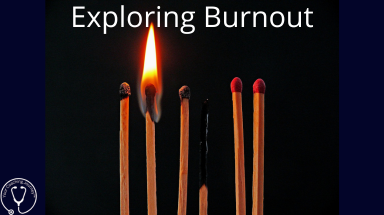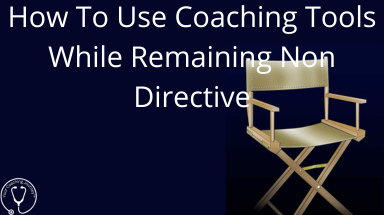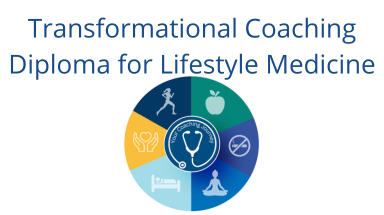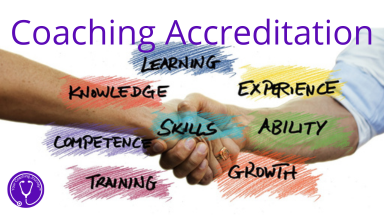The Doctors’ Coaching Blog
Here we share our thoughts on how doctors can utilise coaching to support those around them, from clients to patients, from mentees to trainees; from patients to colleagues; and from colleagues to family and friends. Well executed coaching skills have the ability to transform any conversation into an opportunity to generate new ideas and, from there, to transform relationships into more balanced and empowering thinking partnerships.
We’ll also share more insights in to our Doctors’ Transformational Coaching Diploma.
If you have something specific you are looking for, you can search for the keyword here:
Or Simply Browse our Articles About Coaching:
The Drama Triangle
The Drama Triangle offers another way to explore the coachee’s perception of their inter-personal relationship dynamics and behaviour patterns. It is an extremely useful model to be aware of as a coach, and to introduce to your coachee to help raise awareness about their view of their situation. It is useful to demonstrate some caution when using the model in the coaching room, but it is a great way of helping the coachee gain a new perspective on the roles they’re playing in their relationships.
In this article we explore the Drama Triangle and how we might use it to its full advantage in the coaching room.
Somatic Coaching
We explore what somatic coaching is and how we could begin to explore it with clients and integrate it in to our coaching repertoire
Coaching Supervision
What is coaching supervision and why would I want to engage with it as a coach? In this article we will explore the different aspects of supervision, the barriers and what to consider when it comes to supervision.
Exploring Burnout
We regularly explore topics that coachees might bring to a coaching conversation.
One such topic is ‘burnout’ and as with many topics that arrive at the door of the transformational coach, this is an important topic that affects many members of the medical community.
Burnout is a complex phenomenon, and we might well be coaching individuals who are at different stages in the burnout journey. They may be feeling stressed and concerned about ending up burnt out; they may be at the point of almost burning out; or they may have already burnt out.
There is a place for coaching in all of these situations and in this article we begin to explore the concept of burnout, how it is defined and measured, and how we might go about supporting someone around their relationship with burnout.
Join us to find out more about how coaching might provide a useful intervention for those who are experiencing the symptoms that arise at the different stages of burnout.
How Do You Use Coaching Tools While Remaining Non-Directive?
Prefer to listen? This blog post forms the basis of a podcast on our new coaching model, which you...
The Clean Language Approach To Coaching
We know that reflecting back the coachee’s own words in a coaching session often proves more powerful than paraphrasing, and the ‘Clean Language’ approach takes this approach to another level.
In using the client’s own terminology, a clean language coach builds on their choice of words to elicit metaphors and a metaphorical landscape that allows the coachee to think differently, and gain new insights, about themself and their situation.
In this article we will explore what the ‘Clean Language’ approach sounds like, how it is constructed and what we might draw from it to weave into a more integrative approach to coaching
What Is The Transformational Coaching Diploma For Lifestyle Medicine?
Do you have an interest in Lifestyle Medicine, or Health Coaching. Are you wondering exactly how to help people to make changes to their lifestyle that are sustainable?
Find out about our Transformation Coaching Diploma for lifestyle Medicine here.
What Is Accreditation and Do I Need to Apply?
Accreditation – ‘What is it?’ and ‘Why would I want to apply for accreditation?’
These are questions that we are asked from time to time, and so we thought that we’d offer our thoughts on the matter in this episode of the podcast. While it’s not essential to be personally accredited as a coach, there are some real benefits for those who do apply for accreditation.
In her role as an accreditation assessor with the Association for Coaching, Helen is well-versed in the assessment criteria that applicants are expected to meet. She is, therefore, well placed to answer your questions and concerns about accreditation and the accreditation process.
How Can Coaching Help With Change?
We regularly explore the topics that coachees might bring to a coaching conversation. One such topic is ‘change’; a huge topic that encompasses many different potential areas of a coachee’s life.
Sometimes, the coaching might be focused on a change that is happening around the coachee or it might be a change that the coachee wants to bring about for themself.
Either way, everyone responds to change differently and there is a broad spectrum of how impactful and challenging change can be.
In this article we explore how we might help our coachees to navigate change in their personal or professional lives, whether it’s change they want to see or change that they feel is being done to them. We touch on Kübler Ross’s model of change and also the work of Swedish psychologist, Claes Janssen who developed the Change House model to describe the different rooms that someone might enter as they move through a period of change.
Join us for an interesting exploration of how we might start to talk about change with our coachees.









